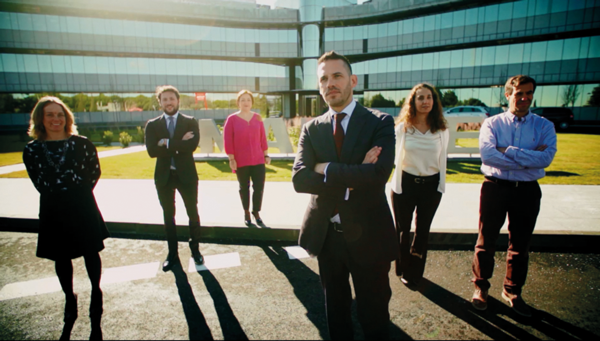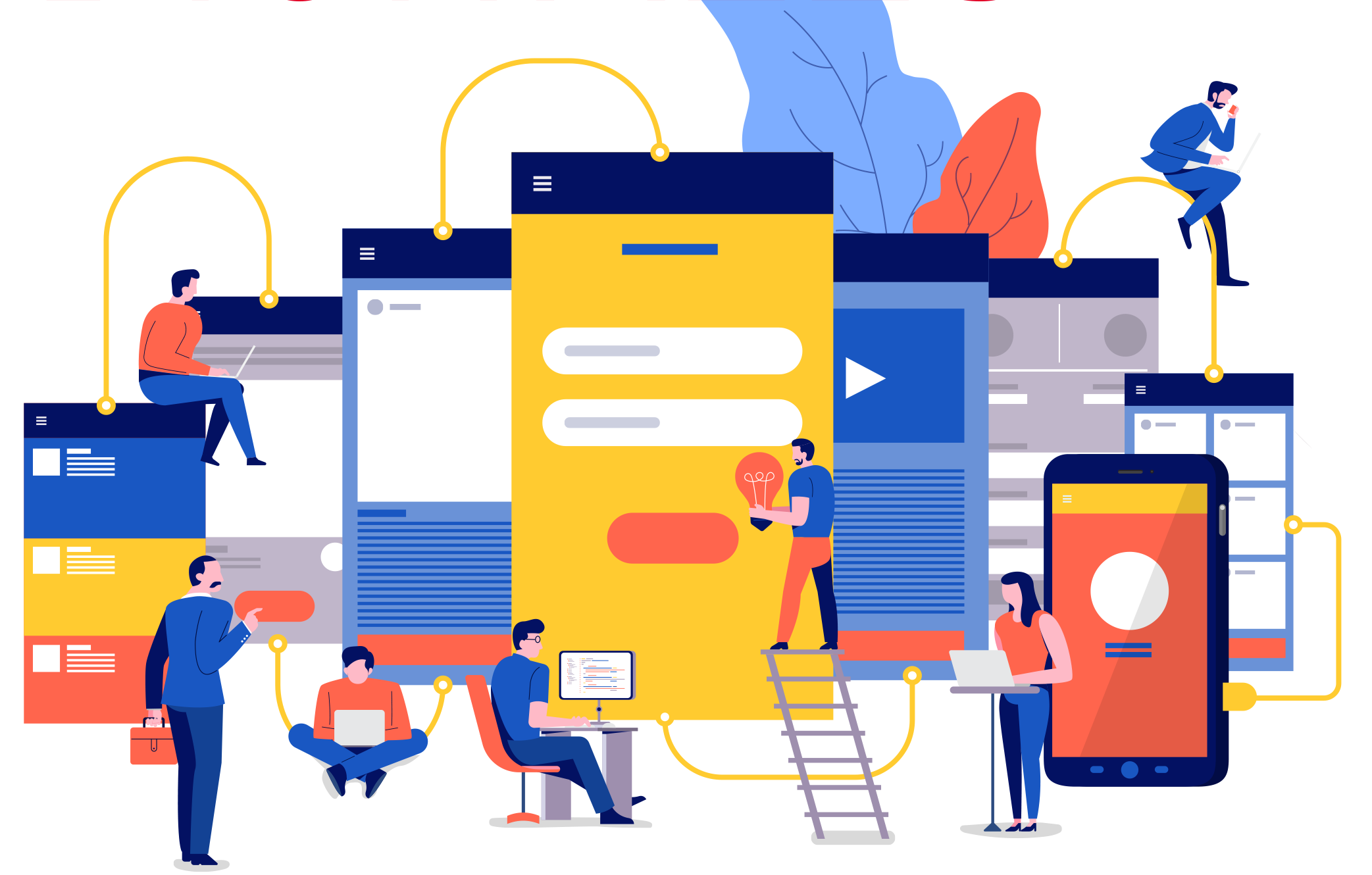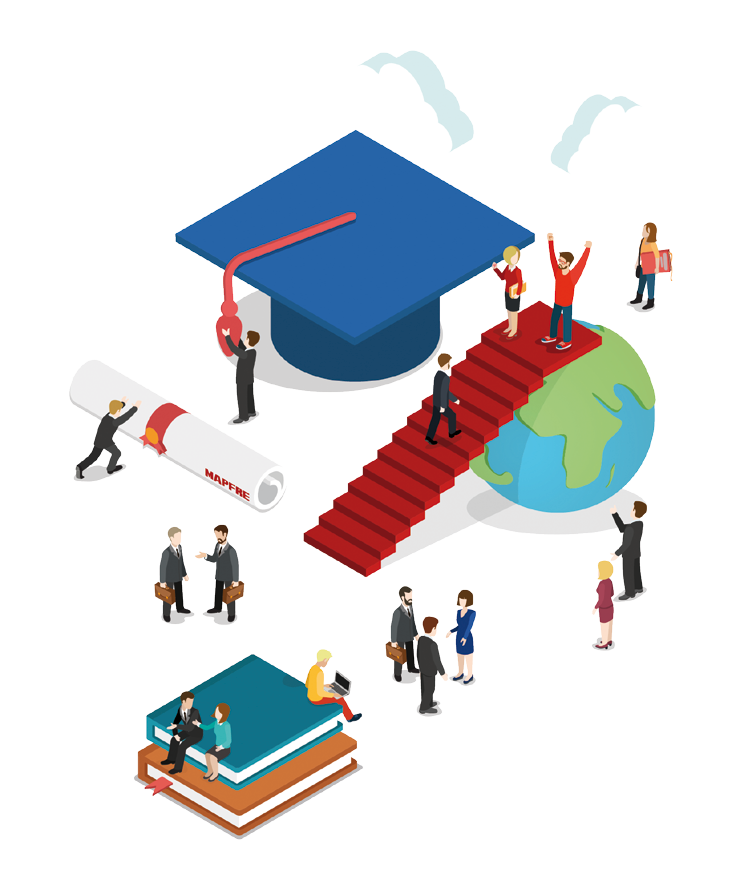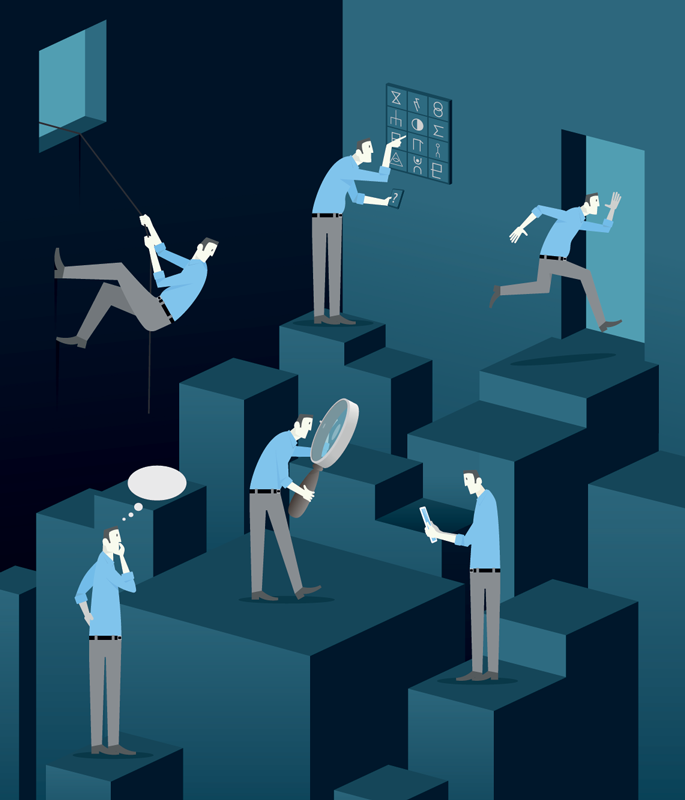TEXT MARINA CALVO | LLUSTRATION THINKSTOCK
MAPFRE is fully immersed in an ambitious initiative: DigitalChallenge, whose objective is to manage the change required of the organization in order to adapt to the new digital requirements, bringing flexibility and agility to the work environment, as well as tools that allow for collaborative work and knowledge sharing, the development of digital profiles and new forms of remuneration, recognition and evaluation.
For this change to be feasible, it must be accompanied by new behaviors and habits.To promote these, one of the spheres of activity within DigitalChallenge focuses on Culture in a Digital World, an initiative we address in this article. Elena Sanz, general manager of Human Resources at MAPFRE and sponsor of DigitalChallenge, outlines the spirit of this initiative: “It’s time fora full transformation, for us to do things differently and be even better. It’s not a question of changing our culture, but rather improving the way we work, taking advantage of the strengths and values that have always been our hallmark.
”What do we mean by culture in a digital world? In recent months, MAPFRE has gone through a profound inner reflection process, with working sessions in which all the countries and CEOs were represented. These enabled us to identify MAPFRE’s new behaviors and habits on which all our employees must focus in order to move forward and adapt to the new challenges and environments we are facing. These behaviors, approved by MAPFRE’s ExecutiveCommittee, were presented to the organization as a whole lastJune via the Global Intranet.
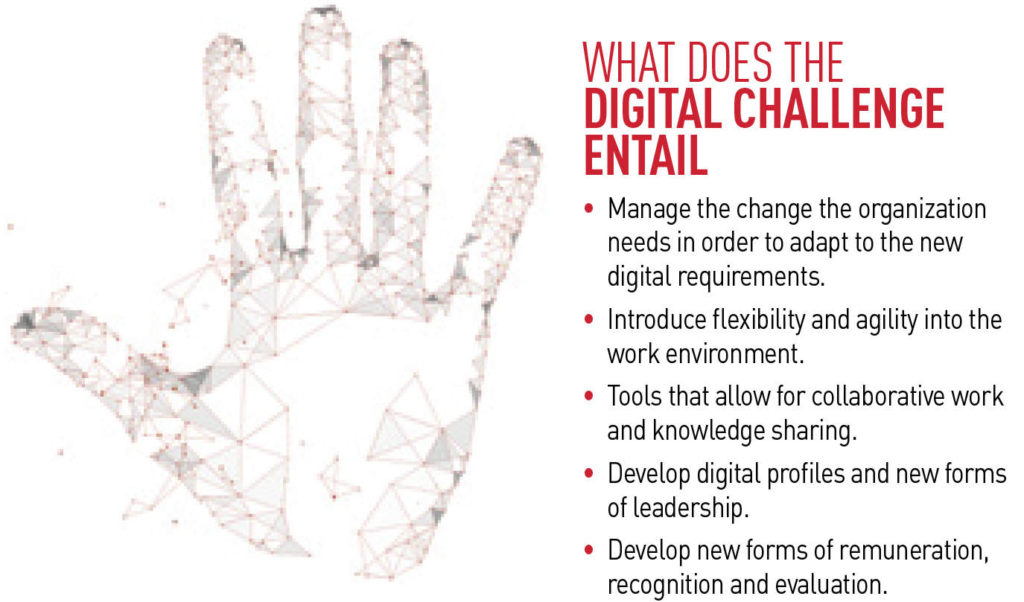
“During this process of identifying the new behaviors, which were comprehensively defined in-house and are fully aligned with our longstanding culture and strengths, a benchmark was also determined by visiting and analyzing a range of leading multinational companies from various sectors of activity. This made it possible for us to learn about different initiatives for defining possible models of cultural transformation. These behaviors and habits, the result of an inner reflection process, were agreed at the global level. In short, they are the behaviors and habits that we in MAPFRE feel are necessary for this transformation, and which are aligned with our Values,” explains Elvira Arango, deputy general manager of Training at MAPFRE.
Three behaviors, nine habits (3+9)
“Collaborate, Innovate and Be Agile” are the three behaviors on which, from now on, all employees are going to focus and which we will have the chance to intensify through training, awareness and communication initiatives designed to successfully tackle this transformation. To advance successfully in the new digital environment, all of us must:
- Work collaboratively to achieve better results;
- Be innovative in order to transform good into something better on a continuous basis, and
- Be agile to make decisions faster and more effectively.
All of this, with a clear objective that is our new resolve: to create the best experience for clients, employees and society at large.
MAPFRE leaders: two behaviors, four habits (2+4)
In addition to these three behaviors and nine habits, for the leaders and those in charge of teams we have defined two additional behaviors, with four associated habits:
- “Respect”, to enhance the diversity of visions and performance; and
- “Communicate”, to align and pass on any information that proves key.
These new MAPFRE behaviors and habits, which we are all going to take on board, are graphically reflected in what we have called a manifesto, which you can see on the next page.
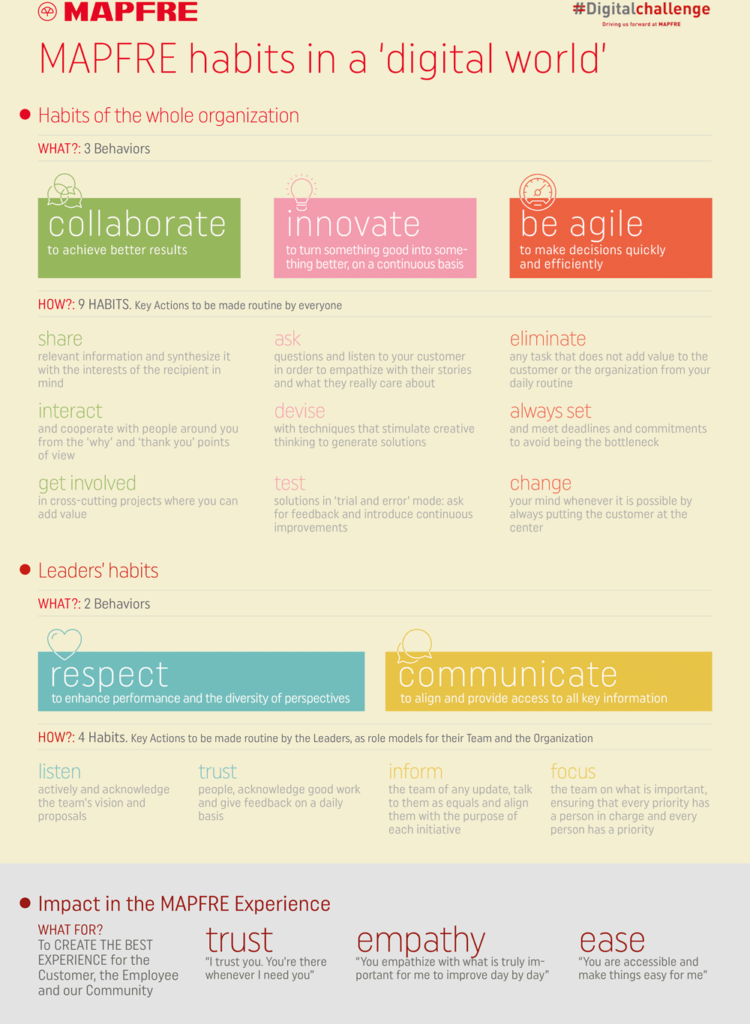
Any transformation entails doing things differently and makes us be even better; any transformation involves the successful acquisition of new behaviors and habits. MAPFRE needs all of us to complete this journey. Will you join us?
TRAINING, KEY IN THIS PROCESS OF CHANGE
People are the key to successfully tackling any change process within a company and, for this reason, DigitalChallenge benefits from a transversal change management strategy that will accompany employees in this transformation. Within this strategy, in addition to communication and awareness-raising actions, trainingt akes on a leading role.
MAPFRE has designed a global training plan – both in-person and online – which is already being deployed and which has three objectives:
- Firstly, to provide employees with new skills related to the new digital environment;
- Secondly, to train employees in the use of the tools that are being introduced into the organization, and,
- Finally, the development of the new behaviors and habits that have already been described.
This training is already being deployed via two areas of ourCorporate University: the newly created digital literacy classroom and the skills school.
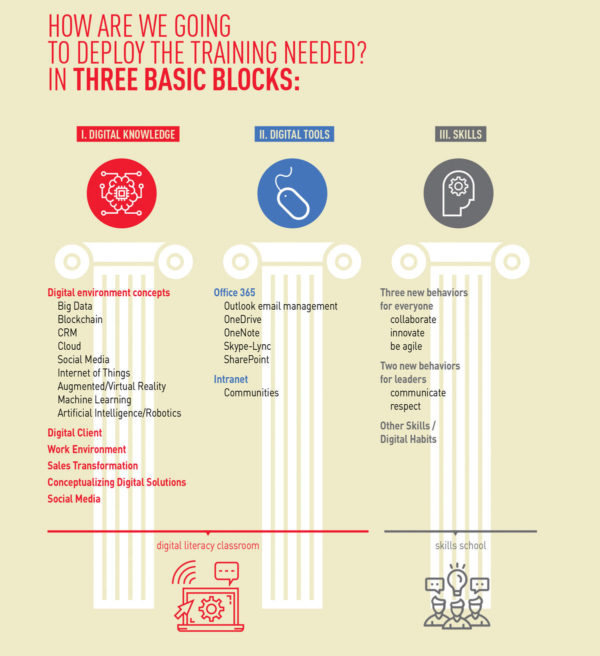
The plan includes online content and a highly robust in-person training program. The online contents, presented in learning pills and nuggets (micro-learning), are deployed through the eCampus; some of them are mandatory for all employees, while others are optional, and they are offered by way of an open catalog in the “Self learning” section. The in-person training, designed with experiential methodology, has the goal of enabling employees to live out firsthand experiences and acquire the new habits and behaviors, so as to put them into practice and make them something routine.
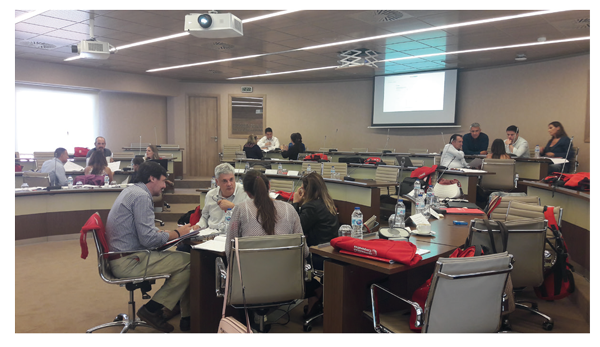
Thus, in the month of September, some fifty in-house trainers from all the regions, business units and corporate areas came to the Monte del Pilar Campus in Madrid, as we llas to the MAPFRE headquarters in Majadahonda. For three days, they had the chance to fully take on board the essence of Digital Challenge andCulture in a Digital World, receiving this training so as to be able to pass it on later in each of their countries and companies.
This project represents a transformation of our way of working, of our behaviors, and the figure of the in-house trainer – one of the greatest assets of the training strategy and driver of change within MAPFRE – will play a key role in putting this new philosophy across. In addition to all of these training initiatives, a reverse mentoring plan has been prepared, whereby employees – usually junior profiles and experts in the use of digital tools (collaborative platforms and social networks) and the latest trends – share their know-how and experience with more senior profiles, and encourage them to incorporate new habits into their way of working.

THE OPINION OF THE EMPLOYEES
Once the habits and behaviors were defined, it was then time to call on the participation of employees and learn their opinion.To this end, a survey was designed and sent to all employees around the world last July. This enabled the views of more than 8,000 participants to be compiled regarding which habits they believed would have the greatest impact on making clients choose us, employees prefer us and the organization’s processes improve. A reflection exercise thanks to which many employees have already internalized the new habits.
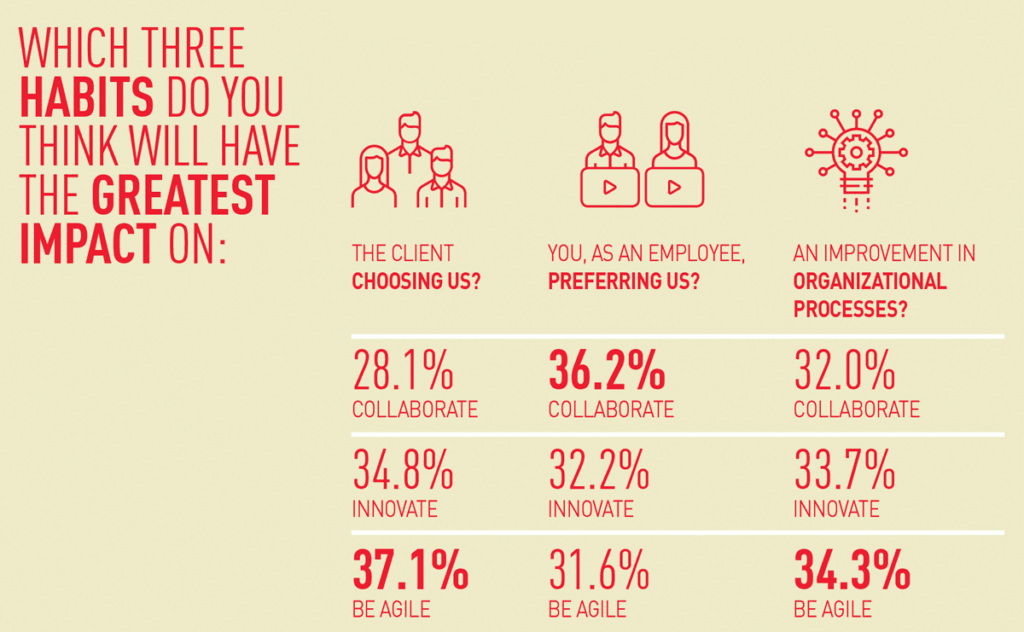
A NEW WAY OF TELLING THINGS
Throughout the journey this transformation entails, and as part of its change management strategy, MAPFRE is supporting the communication of DigitalChallenge issues by storytelling, which includes the production of a ‘reality show starring’ employees of different nationalities. In the last chapter, which you can see in the People section of the GlobalIntranet, our colleagues discovered and put into practice the new behaviors and habits of Digital Challenge.
